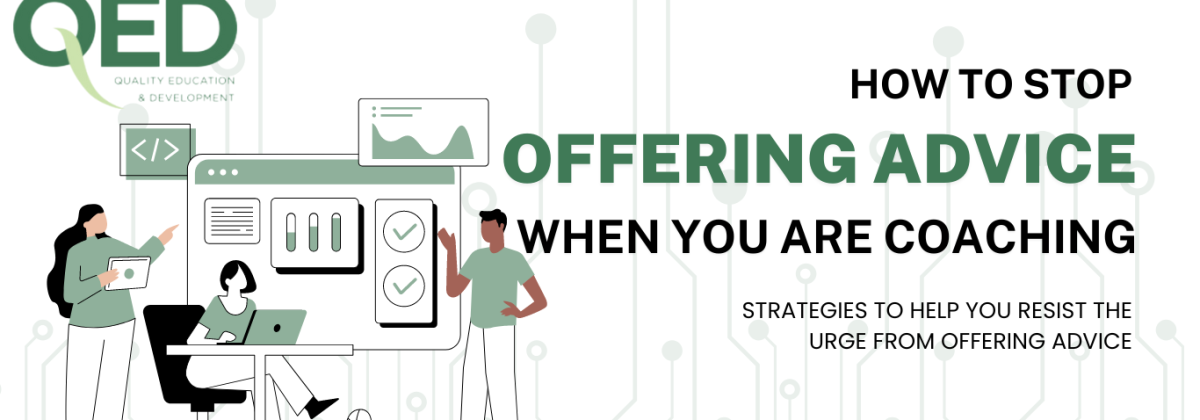Set YOUR Potential Free

How to Stop Offering Advice when you are Coaching
Every coach, if they are honest, has had the desire to offer their advice to clients, it is the most natural thing in the world to share our thoughts, ideas and experiences with another, however, when we are coaching we must respect the wisdom of our coachees and focus on drawing this from them.
Here are some strategies to help you resist the urge to offer advice:
Before you enter a session take some time: Quieten your mind and remind yourself of your role and purpose as coach, which is to facilitate an environment of ‘best thinking’ in your coachee, and let go of any expectations.
Active and Reflective Listening: Focus on actively listening to what the coachee is saying without immediately formulating a response or solution. Pay attention to both their verbal and non-verbal cues to fully understand their perspective. Reflect on what the coachee has said to demonstrate that you understand their perspective and to encourage further exploration.
Ask Powerful Questions: Instead of offering advice, ask open-ended questions that encourage the coachee to think critically about their situation and explore potential solutions on their own. Examples include:
- What possibilities do you see available to you?
- How do you see yourself moving beyond this challenge?
- What are the potential benefits of each course of action?
Empower the Coachee: Encourage the coachee to trust their judgment and decision-making abilities. Remind them that they are ultimately responsible for their growth and development.
Explore their Values: Help the coachee clarify their values, and then guide them in exploring how their current situation aligns with their goals. This can help them generate solutions based on what is most important to them.
Use Visual Tools: These could include pictures, models, diagrams, and charts for example to help the coachee visualise their situation and potential solutions. This can encourage them to think more creatively and independently.
Practice Self-Awareness: Be mindful of your tendencies to offer advice and actively work on restraining yourself. Remember that coaching is about empowering the coachee, not about providing solutions.
Set and Reset Clear Boundaries: Establish clear boundaries with the coachee regarding your role as a coach, and remind them if this becomes blurry. Let them know that while you’re there to support and guide them, you won’t be providing direct solutions or advice.
Seek Feedback: Regularly ask the coachee for feedback on your coaching approach. This can help you identify areas where you may need to adjust your behaviour to better support their growth and development.
By implementing some of these strategies, you can effectively refrain from offering advice during coaching sessions and create a more empowering and supportive environment for the coachee to explore their own solutions. You will have many other opportunities in your working week to be an adviser, guide or expert.
We offer ILM Coaching and Mentoring qualifications at levels 2, 3, 5 and 7 including coaching supervision.
Find out what’s on offer here or pop us an email for more info.

